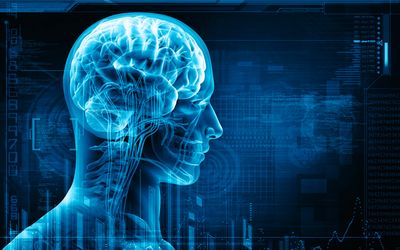IT SHOULD come as a relief to those concerned about their state of mind that the Diagnostic and Statistical Manual of Mental Disorders (fourth edition) concedes that mental illness "lacks a consistent operational definition that covers all situations".
It must mean that it is perfectly okay to feel as though you’re being driven mad by what passes for the human condition; you’re not mad, the world is. That is, you may be spared the stigmatisation and ostracism associated with a mental disorder as long as you don’t suffer actual anguish caused by a symptom or a disability, according to the manual.
Incomprehensibly though, the perpetrators of truly objectionable behaviour, such as warmongers or sellers of short-term insurance, are not necessarily mad, since their brand of deviance is the consequence of political, religious or cultural convictions and "not arising from a dysfunction in the individual".
This inconsistency became apparent to the member (of the Upper Jukskei Flyfishing Collective) at the opening last week of an art exhibition, The Other Space, at the Workers’ Museum in Newtown, Johannesburg. One of the speakers, Francois Cronje, made the point that "for civilised people, it has become unacceptable to dehumanise women or Jews or people of other races" and that "all legal strictures against gays have been lifted", yet the mentally ill are vilified as deviant and suffer discrimination at every level of society.
This is an obvious injustice and a widely tolerated abuse that has no place in SA’s supposedly progressive and inclusive society. The crazies (Cronje’s refreshingly politically incorrect turn of phrase) are no more deserving of abuse by society than anyone else. It is the kind of thing we are supposed to have thrown out with apartheid and that we are obliged to oppose if we are to remain free. Part of achieving that is to follow the international trend to deinstitutionalise mental patients. The Times reported the University of Cape Town’s Prof Crick Lund saying deinstitutionalising did not mean closing down homes and moving patients into the community. Lund was commenting on news that Gauteng mental patients faced government funding cuts.
Integrating mentally ill people into society seems appropriate and the mentally ill artists associated with Gateway House who are participating in The Other Space illustrate the desirability of the practice. But they still need care, which needs funding. That means, as in so many other instances of social recidivism, our government contradicts the Constitution and denies its own pious declarations.
Lund pointed out that there was a danger that if funding did not follow mentally ill people into community-based homes, the patients could land up in prison. In the US, he said, patients who are prematurely released from institutions were being reinstitutionalised in prisons. What is being dressed up as a progressive policy development is, in fact, a slide towards medieval barbarity.
If, instead, society has to do the state’s work, a good place to start would be for individuals to consider to what degree the dysfunctionality diagnosed in mentally ill people may be directly attributable to atavistic social norms and irrational fears and belief systems. If, as defined, suffering is the operative term in mental illness, its source must to some degree lie with society’s rejection of behaviours that are different from the usual. It is not the crazies who are mad, it’s us.
The mentally ill artists have shown the way. They have attached their names to their art. It means, stigma or no stigma, they claim their work as their own and thus their rightful place in the world. No one else can do that for them.
• Blom is a freelance journalist. He likes to flyfish

Picture: THINKSTOCK
IT SHOULD come as a relief to those concerned about their state of mind that the Diagnostic and Statistical Manual of Mental Disorders (fourth edition) concedes that mental illness "lacks a consistent operational definition that covers all situations".
It must mean that it is perfectly okay to feel as though you’re being driven mad by what passes for the human condition; you’re not mad, the world is. That is, you may be spared the stigmatisation and ostracism associated with a mental disorder as long as you don’t suffer actual anguish caused by a symptom or a disability, according to the manual.
Incomprehensibly though, the perpetrators of truly objectionable behaviour, such as warmongers or sellers of short-term insurance, are not necessarily mad, since their brand of deviance is the consequence of political, religious or cultural convictions and "not arising from a dysfunction in the individual".
This inconsistency became apparent to the member (of the Upper Jukskei Flyfishing Collective) at the opening last week of an art exhibition, The Other Space, at the Workers’ Museum in Newtown, Johannesburg. One of the speakers, Francois Cronje, made the point that "for civilised people, it has become unacceptable to dehumanise women or Jews or people of other races" and that "all legal strictures against gays have been lifted", yet the mentally ill are vilified as deviant and suffer discrimination at every level of society.
This is an obvious injustice and a widely tolerated abuse that has no place in SA’s supposedly progressive and inclusive society. The crazies (Cronje’s refreshingly politically incorrect turn of phrase) are no more deserving of abuse by society than anyone else. It is the kind of thing we are supposed to have thrown out with apartheid and that we are obliged to oppose if we are to remain free. Part of achieving that is to follow the international trend to deinstitutionalise mental patients. The Times reported the University of Cape Town’s Prof Crick Lund saying deinstitutionalising did not mean closing down homes and moving patients into the community. Lund was commenting on news that Gauteng mental patients faced government funding cuts.
Integrating mentally ill people into society seems appropriate and the mentally ill artists associated with Gateway House who are participating in The Other Space illustrate the desirability of the practice. But they still need care, which needs funding. That means, as in so many other instances of social recidivism, our government contradicts the Constitution and denies its own pious declarations.
Lund pointed out that there was a danger that if funding did not follow mentally ill people into community-based homes, the patients could land up in prison. In the US, he said, patients who are prematurely released from institutions were being reinstitutionalised in prisons. What is being dressed up as a progressive policy development is, in fact, a slide towards medieval barbarity.
If, instead, society has to do the state’s work, a good place to start would be for individuals to consider to what degree the dysfunctionality diagnosed in mentally ill people may be directly attributable to atavistic social norms and irrational fears and belief systems. If, as defined, suffering is the operative term in mental illness, its source must to some degree lie with society’s rejection of behaviours that are different from the usual. It is not the crazies who are mad, it’s us.
The mentally ill artists have shown the way. They have attached their names to their art. It means, stigma or no stigma, they claim their work as their own and thus their rightful place in the world. No one else can do that for them.
• Blom is a freelance journalist. He likes to flyfish



















Change: 1.37%
Change: 1.32%
Change: 2.91%
Change: 0.45%
Change: 3.09%
Data supplied by Profile Data
Change: 1.63%
Change: 0.83%
Change: 1.37%
Change: 0.00%
Change: 0.69%
Data supplied by Profile Data
Change: -2.04%
Change: -1.78%
Change: -1.55%
Change: -1.86%
Change: -1.48%
Data supplied by Profile Data
Change: -1.19%
Change: 0.31%
Change: -0.65%
Change: -1.39%
Change: 2.92%
Data supplied by Profile Data